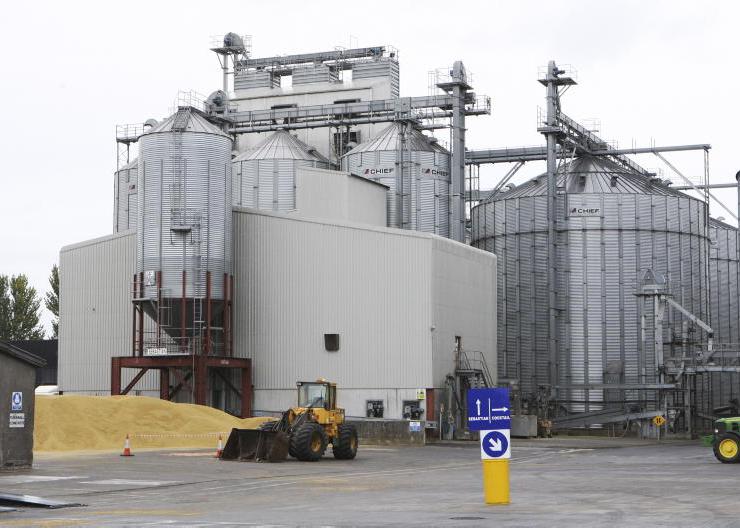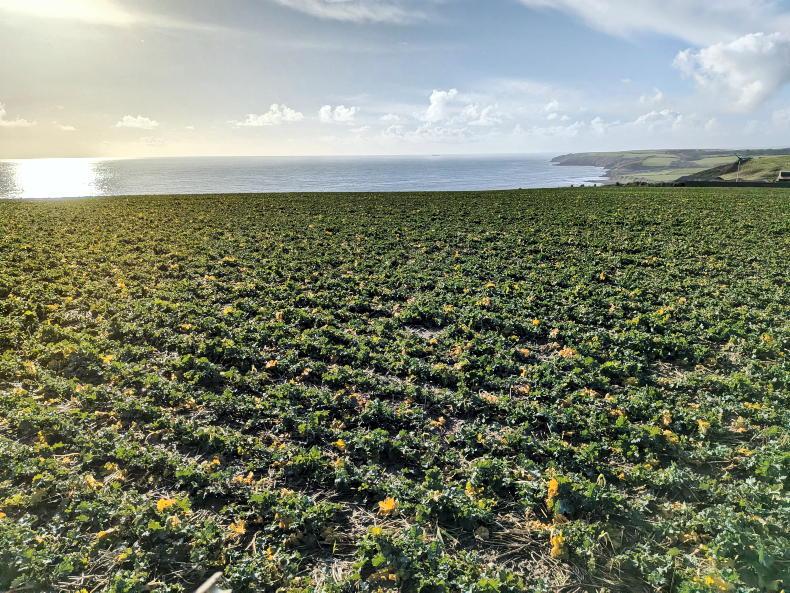When us tillage farmers go out in our tractors into our fields to prepare the land and sow our crops, it will never have mattered more.
Our crops, such an afterthought that they hardly got a mention in the original Food Harvest 2020, are vital this year.
The grain that traded out of Ukraine and of Russia - 30% of the planet’s exports - is off the market. The oppressed need it for themselves and the oppressors have been shut out of the global marketplace, and rightly so.
But there is a massive looming problem. It’s a problem that the National Fodder and Food Security Committee has immediately identified as being the most urgent challenge facing food production.
And it’s not the price of fertiliser and fuel. It’s the availability of them. Quite simply, the spring work can’t happen without agri diesel.
At present, the story is the same from Castletownbeare to Castleblaney, from Kilmore to Killybegs.
Fuel merchants are only receiving about half the fuel they need to fulfil orders and thus are rationing agri diesel among their customers.
Instead of a fill of the typical 2,500-litre diesel tank in most farmyards, only 1,000 litres is being delivered.
It doesn’t matter too much this week - heavy rainfall means that tractors, ploughs, harrows and drills are, just like cows and cattle, inside in sheds, waiting for the spring to start.
But start it will, and hopefully soon. And when the surge comes, we will need diesel on tap. If we don’t, the spring won’t happen. And if the spring doesn’t happen, the summer doesn’t matter and the harvest doesn’t exist.
There’s no way of knowing at this point if the shortages are temporary or more serious than that. They could be due to a combination of global trade adjusting to the shock of the loss of Russian oil coupled with some panic buying by farmers.
Contractors crucial
Contractors, missing from Tuesday's initial Fodder and Food Committee meeting, were invited to Friday's meeting, and rightly so. Of the thirty-three groups in the room, the FCI (Farm and Forestry Contractors of Ireland) have as much at stake as anyone. Diesel prices had already led to increased guide prices in January, but the recent surge in prices means those prices would see losses accrue for every acre of work completed. With a typical silage outfit consuming 30litres of diesel for every acre of silage harvested, the 50c/l recent rise in price means an extra €15/acre in running costs.
A diesel surcharge may be required. Access to finance to maintain contractor cashflow will be essential.
Again, the pressing problem may be ensuring supply of fuel. The FCI estimagte that contractors consume 350m litres of diesel a year, almost two thirds of all agri-diesel usage. As much as 200m litres of that will be used between now and mid-June in the peak silage season. Before then, fields need slurry and fertiliser. the immediate need may be primarily for tillage work, but contractor work in our grasslands is the heavy user.
AdBlue adds to worries
There are even doubts about AdBlue price and availability. It is essentially water and urea, so it is inevitably affected by recent events. Yara provided reassurance on that score, even as they closed two fertiliser plants this week.
Perhaps the OPEC countries can turn the taps up and fill the current shortfall. But they need to do it quickly.
So if there’s one message that Minister for Agriculture Charlie McConalogue can bring to cabinet, it’s that we need engagement at the highest level between the Government and the European Commission with a simple message. Get oil, and get it now, or we won’t be able to grow crops to feed ourselves and our livestock next winter.
Of course, anything that befalls us in Ireland pales into comparison with the impossible choices facing the Ukrainian people. There really is such a thing as life and death, and it’s staring out at us on our TV screens every evening.
That said, it’s hard to maintain a sense of perspective if you’re a pig farmer who is seeing a life’s work wiped out in a matter of weeks.
Perhaps it’s the work of generations, surviving as others stepped away, until you were one of only 300 left standing across the whole country. All gone now, perhaps forever. The same is true of our vegetable growers and our poultry producers.
It can’t be said often enough that these are the three sectors most closely linked to the Irish consumer, through the Irish retailers. These are the three sectors first to go to the wall in the current crisis.
What does that say about our country, when two kilos of carrots can be bought for the price of a cup of coffee? It seems the further you are from the consumer, the safer you are.
There is the counter-argument that there are producers of these commodities who are dealing face to face with the consumer through farmers’ markets or direct sales or farm shops and these people are more likely to survive.
It’s a valid statement, and I have nothing but admiration for Magners Farm’s eggs, Wheelocks Fruit and veg or Coolnalowle’s meat. And often these products have very high production value - organic meat, pick-your-own fruit, free range eggs.
But the thing is, most farmers are not natural salespeople, just like not every musician is a songwriter or every mechanic is a car salesman.
The job spec for being a farmer in 2022 is pretty long as it is, adding a separate role with an entirely different skillset is unrealistic.
Most farmers are only capable of producing meat, milk, fruit, vegetables or crops to the best of their ability. I say ‘only’, but that is no mean feat. It takes skill, care and dedication to do properly and profitably.
So the problem is not farmers, it’s food being too cheap. The proof of this truism is that 20% of food purchased in Ireland is never consumed, it’s disposed of uneaten.
What proportion of petrol or diesel will be spilled or wasted this year? I’d venture you wouldn’t fill a lawnmower with it.
There's no need to panic, but it's only natural to be worried at this point.
Saturday evening update:
Life moves pretty fast, as Ferris Bueller famously remarked. The very fact that it's 36 years since he remarked that is proof enough for me. Since Friday morning, it seems that diesel prices have receded quite significantly from Thursday's high tide. It may be that this is a sign that supply will meet demand, although it's far too early to say that with certainly.
Meanwhile, Friday saw a number of co-ops formally confirm they have no fertiliser for sale at present. And stories now abound that when CAN is again in merchant's yards, it will be as much as €200/t more.
Out of the frying pan and into the fire, it seems.









SHARING OPTIONS